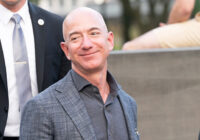What is the point of having a billion dollars? Most people would say, after observing the behavior of recent billionaires, that the point is to turn the first billion into multiple billions. If you don’t spend it or bury it in the ground, money grows. That’s a law of nature. And when you have a billion dollars, you simply can’t just spend it, although some people make a valiant attempt at doing so.
Jeffrey Epstein only had half a billion dollars. He could have aimed for a billion. But he proved very resourceful in spending it rather than nourishing it to expand into 1 billion or more. Epstein had other things to do, several times a day. His frenetic activity meant that he had to pay Ghislaine Maxwell for her services as well as cater to numerous other people’s needs. Epstein was no Warren Buffett, but he was apparently friends with Buffett’s best friend, Bill Gates. Buffett and Gates used to take turns at being the richest man in the world, until Jeff Bezos definitively unthroned them.
The Mother of All War Crimes
Still, Epstein, even with his modest fortune, managed to play the philanthropist, distributing cash to supposedly worthy causes, such as Harvard and MIT. His selflessness served to ingratiate him with their leaders and the intellectual elite. All of which proves that, if you know what you’re doing, you don’t need a billion dollars to buy your way into the nation’s and the world’s elite. It also offers some perspective on the power and influence that multiple billions of dollars can bring. If Epstein could do so much with so little, what might real billionaires do?
Philanthropy turns out to be a wonderfully satisfying way of at least appearing to spend large amounts of money you could never spend on yourself. This is especially true, if like Buffett you have breakfast every day at McDonald’s rather than, say, the Ritz Carlton.
This week, Business Insider cited a report by the Institute for Policy Studies (IPS) on the practice of multi-billionaires who signed the famous “Giving Pledge.” The results are surprising. The journal highlighted this fact: “Over 75% of the original 65 billionaires who promised to give away the majority of their fortunes in 2010 are richer now than they were then.” And it wasn’t because they kept putting in a hard day’s work over the past decade.
This may sound paradoxical, but we now know that, when it comes to billionaires, there will always be a “method in their madness.” The challenge is to unveil the method.
Here is today’s 3D definition:
Give away:
1) Transfer something to another person
2) In the language of billionaires, secure for oneself and one’s family while appearing to transfer to others
Contextual Note
If the average person gives away any significant amount of money, they nevertheless realize that the cushion they had been sitting on ends up a little flatter and less fluffy than it was before. That doesn’t seem to be the case with billionaires.
The Institute for Policy Studies wastes no time drawing its most significant conclusion: “Private philanthropy is on a collision course with democracy. Without intervention, billionaire philanthropists will soon be shaping public policy in competition with local and state governments, which will be facing austerity conditions in the wake of a resurgent Covid-19 pandemic.”
This should be doubly worrying. What private philanthropy does happens on another level than ordinary, everyday corruption in the political sphere due principally to corporate funding of political campaigns. In the current culture of US capitalism, tend to believe that philanthropy can solve the problems that government is too bureaucratic to deal with.
Much of the political class, especially Republicans and libertarians in the US, insist on reducing the role of government in addressing social needs. In their idealism, they expect philanthropy to be the beating heart of a trickle-down system that will generously spread the excess wealth now in the hands of the billionaires to respond to society’s needs.
If we push the biological metaphor from the preceding sentence a little further, it reveals exactly how the system works in real life. The “hands” that hold the money feed the beast with the “beating heart,” who ingests, for its own diverse needs, the excess wealth. This then allows the wealth to trickle down exactly the way our bodies expel the liquid we pour into it. Some of it may be sweat, but the bulk of it is directed toward the porcelain.
In reality, as the IPS report reveals, philanthropy in the hands of the mega-rich works simply as a way of holding onto wealth rather than giving it away. We learn that “although these mega-donors received tax deductions commensurate with the amounts of their donations, the lion’s share of the money they donated may not actually get into the hands of active public charities for years.”
Most of the money “given away,” earning plaudits from the media impressed by the generosity of the donors, is channeled into “wealth-warehousing vehicles such as private foundations and donor-advised funds.” These become tools of personal power that serve the three-pronged purpose of bolstering the personal image of the donors, consolidating the standing of their family (as well as often providing roles for family members to play), and finally giving the donors disproportionate influence over public policy in the fields they choose to focus on.
Historical Note
Some may remember the US Democratic presidential primary campaign that prematurely ended in March as an exceptional period of history. For nearly a year, alternative ideas about policy and even the nature of society were occasionally invoked and brought before the public by the candidates vying for the presidency. Thanks to Bernie Sanders, Elizabeth Warren, Andrew Young and even Tom Steyer, political debate could touch on and encourage discussion of actual issues rather than just the obsessive question of how to defeat President Donald Trump in the November election.
One of the major themes to emerge was income and wealth inequality, encapsulated in Sanders’ shocking assertion that billionaires “should not exist.” The message took on special meaning when the Democratic mainstream appeared to push mega-billionaire Michael Bloomberg as an example of what they deemed a voice of reason to oppose the grating populism of both Sanders and Warren. Bloomberg managed to spend a record amount of money in the shortest possible time, but his campaign withered on a vine that hadn’t even begun to sprout. Democrats weren’t ready for a billionaire savior to rescue them from a Republican billionaire false prophet.
When challenged, Sanders was clear about what he meant. He understood voters’ perception of the question as a moral rather than a simple economic issue. An economy that not only tolerates but encourages the acquisition required to become a billionaire inevitably provokes in the mind of the average citizen struggling to survive “a moral and economic outrage.” Sanders sensed that psychologically as a society, “we cannot afford to continue this level of income and wealth inequality.” Things have obviously become more exaggerated since the reign of economic chaos that has accompanied the uncontrollable COVID-19 outbreak.
Earlier this week, this author pointed to a case of apparently virtuous billionaires, the Indian Poonawallas, father and son, who are ready to compromise their own hard-earned but clearly excessive fortune in a gamble that might provide an answer, especially for India and the developing world, to the COVID-19 pandemic in the form of a vaccine distributed at cost. Sanders may feel some indulgence for people like the Poonawallas, who are nevertheless exceptional enough and unrepresentative of their class for The New York Times to highlight their billionaire virtue.
The IPS report describes another rare case that stands out: “There are meaningful exceptions to this such as Chuck Feeney, who gave away $8 billion over 22 years in an effective and focused manner through The Atlantic Philanthropies. Feeney is no longer a billionaire and lives in a modest apartment in San Francisco.” What a radical idea, deciding to no longer be a billionaire!
As in other human groupings — such as the police, the military or politicians — where among the good there will always be one or two bad apples, it appears to be equally true that among the billionaires there are even the occasional good apples.
*[In the age of Oscar Wilde and Mark Twain, another American wit, the journalist Ambrose Bierce, produced a series of satirical definitions of commonly used terms, throwing light on their hidden meanings in real discourse. Bierce eventually collected and published them as a book, The Devil’s Dictionary, in 1911. We have shamelessly appropriated his title in the interest of continuing his wholesome pedagogical effort to enlighten generations of readers of the news. Read more of The Daily Devil’s Dictionary on Fair Observer.]
The views expressed in this article are the author’s own and do not necessarily reflect Fair Observer’s editorial policy.
Support Fair Observer
We rely on your support for our independence, diversity and quality.
For more than 10 years, Fair Observer has been free, fair and independent. No billionaire owns us, no advertisers control us. We are a reader-supported nonprofit. Unlike many other publications, we keep our content free for readers regardless of where they live or whether they can afford to pay. We have no paywalls and no ads.
In the post-truth era of fake news, echo chambers and filter bubbles, we publish a plurality of perspectives from around the world. Anyone can publish with us, but everyone goes through a rigorous editorial process. So, you get fact-checked, well-reasoned content instead of noise.
We publish 2,500+ voices from 90+ countries. We also conduct education and training programs
on subjects ranging from digital media and journalism to writing and critical thinking. This
doesn’t come cheap. Servers, editors, trainers and web developers cost
money.
Please consider supporting us on a regular basis as a recurring donor or a
sustaining member.
Will you support FO’s journalism?
We rely on your support for our independence, diversity and quality.






